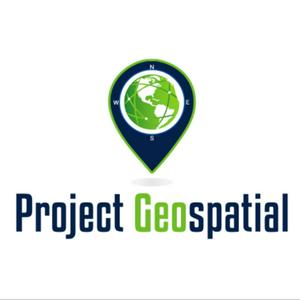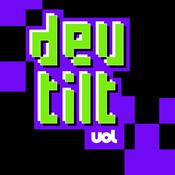Episódios Disponíveis
5 de 362
- Decoding Geo: The Civil Applications Committee | Special CoverageThe segment provides a broad understanding of theCivil Applications Committee (CAC), which serves as a crucial link between different sectors to facilitate the use of advanced technologies for various public benefits. It highlights the CAC's role inenabling federal civil agencies to access and utilize remote sensing data and capabilities from theIntelligence Community (IC) and theDepartment of Defense (DoD), as well as commercial sources, for civil applications such as disaster relief and management.This episode and more can be found at www.projectgeospatial.org.--------17:14
- Decoding Geo: USGS Landsat Year in Review | Special CoverageIn this episode, Project Geospatial explores the USGS Landsat year in review. Landsat, a satellite program capturing Earth images for over 50 years, is invaluable for monitoring environmental changes and managing resources. The program’s recent report highlights its worth at $25.6 billion, showcasing its significant real-world benefits, such as improving flood mapping for farmers, saving millions in wildfire restoration, and enhancing water quality monitoring. With the upcoming Landsat Next mission, featuring advanced sensors and expanded capabilities, the potential for breakthroughs in research and economic value is enormous. The program’s legacy, including the retirement of Landsat 7, emphasizes the importance of accessible data for global collaboration and diverse applications. #Landsat #EarthObservation #SatelliteData #EnvironmentalMonitoring #ClimateChange #WaterResources #WildfireManagement #OpenData #USGS #AgriculturalMonitoring #GlobalCollaboration #SpaceTechnology #LandsatNext #EconomicValue #PublicHealth--------29:13
- Decoding Geo: Geography 2050 Recap | Special CoverageSummary The Geography 2050 Symposium highlighted significant themes surrounding climate change, conflict, human mobility, technology, and collaboration. Experts gathered to discuss the complexities of climate as a “threat multiplier” and its impact on migration and societal issues. Highlights 🌍 Climate change is a “threat multiplier” affecting resource conflicts. 🚶♂️ Approximately 120 million people are currently forcibly displaced due to climate factors. 💻 Advancements in geospatial intelligence are crucial for understanding climate impacts. 🤝 Collaboration across sectors is essential to tackle climate challenges effectively. 🌊 The case of Tuvalu demonstrates proactive approaches to climate-induced migration. 📊 Local knowledge and traditional practices play a vital role in adaptation strategies. 🔍 Data transparency and accessibility are key to empowering communities facing climate issues. Keywords as hashtags #ClimateChange #Geography2050 #Migration #GeospatialIntelligence #Collaboration #LocalKnowledge #Sustainability--------22:55
- Decoding Geo: FedGeoDay 2024 Recap | Special CoverageProject Geospatial presents an AI experiment aggregating and analyzing our content captured from FedGeoDay 2024. Not all content is covered but this definitely covers the highlights and major themes of the conference. Get ready for a deep dive into a recap pf key discussions and innovative ideas presented at FedGeoDay 2024! This recap podcast explores the major themes, from the modernization of geospatial workflows to the impact of AI and machine learning. Key topics covered include: * Open Source Solutions: Discover how open source software and data are becoming critical infrastructure within the government. Learn about the challenges and opportunities of using open source geospatial data for decision-making. * Data Modernization: Understand how agencies are moving beyond traditional GIS systems to embrace database-centric approaches. Hear discussions around cloud-native geospatial data and the importance of interoperability. * AI and Remote Sensing: Explore the role of federal agencies in the growth of AI, including the development of training datasets and ethical considerations. Learn about how AI is being applied to geospatial problems and the challenges of using AI-generated data. * Digital Twins: Gain insights into the concept of digital twins and how they are revolutionizing data production and focusing on process rather than products. Understand the importance of forecasting and modeling capabilities. * Authoritative Data: Delve into the complexities of defining and using authoritative data, as well as the need for semantic layers and ontologies. Discuss the balance between data security and accessibility. * National Spatial Reference System: Learn about the modernization of the NSRS by NOAA’s National Geodetic Survey, and how it will improve accuracy and consistency in geospatial data. * Geospatial Data and Policy: Discover the legal and policy issues facing the geospatial community and the need for updated job descriptions. Hear about the efforts to promote open data and address data security concerns. Be sure to check out the coverage of FedGeoDay on you website: https://projectgeospatial.org/coverage/fedgeoday-2024--------16:06
- Decoding Geo: FOSS4G NA 2024 Recap | Special CoverageSummary The video recaps the 2024 FOSS4G North America event, highlighting key discussions and innovations in open-source geospatial technology. Highlights Overview of the FOSS4G NA event, focusing on open-source geospatial advancements. Insightful discussions on collaborative projects and community contributions. Presentations from industry leaders and experts in geospatial technology. Networking opportunities that fostered connections among participants. Emphasis on future trends and challenges in the open-source geospatial sector. Keywords #FOSS4G #geospatial #technology #open-source #community #innovation--------29:02
Mais podcasts de Tecnologia
Podcasts em tendência em Tecnologia
Sobre Project Geospatial
Project Geospatial is a non-profit media organization committed to growth, innovation and collaboration among academic, commercial and government partners in the geospatial industry. We believe a revolution is coming in geospatial technology – big data is democratizing, satellites are shrinking, and the science of where has never been more important to the health and future of our planet. We provide a leading voice in geospatial industry trends, insights and cross-industry applications to help inspire and conspire with the next generation of great geospatial ideas.
Site de podcastOuça Project Geospatial, CBN Tecnologia - Techtudo e muitos outros podcasts de todo o mundo com o aplicativo o radio.net

Obtenha o aplicativo gratuito radio.net
- Guardar rádios e podcasts favoritos
- Transmissão via Wi-Fi ou Bluetooth
- Carplay & Android Audo compatìvel
- E ainda mais funções
Obtenha o aplicativo gratuito radio.net
- Guardar rádios e podcasts favoritos
- Transmissão via Wi-Fi ou Bluetooth
- Carplay & Android Audo compatìvel
- E ainda mais funções


Project Geospatial
Leia o código,
baixe o aplicativo,
ouça.
baixe o aplicativo,
ouça.































